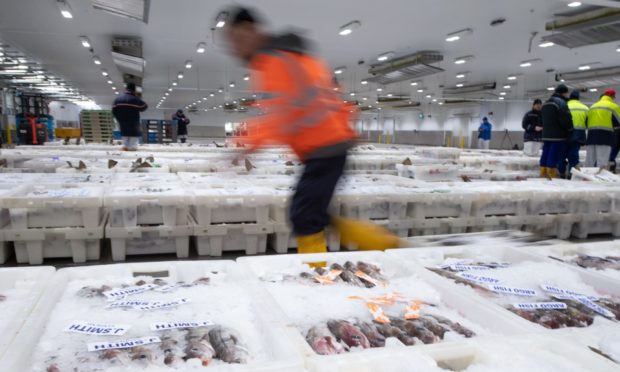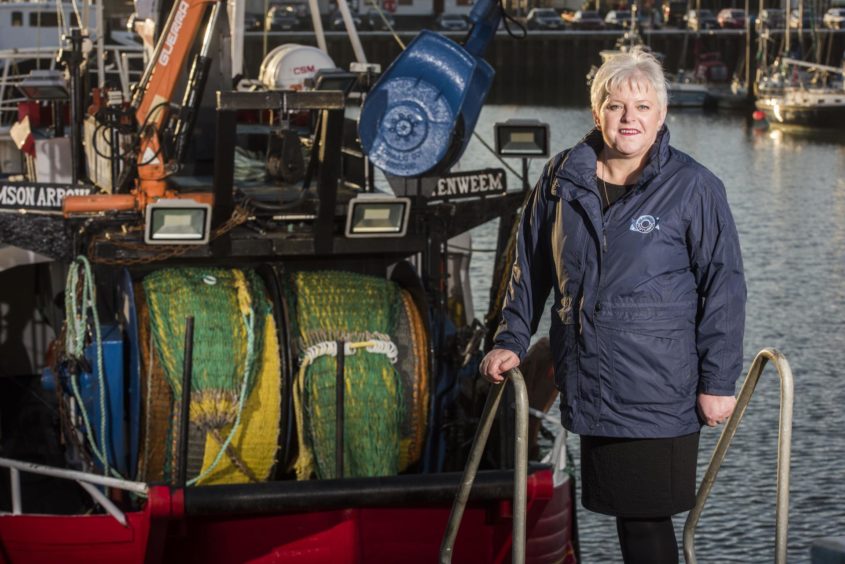Scottish seafood industry leaders have claimed “many companies” are ineligible for help from a £23 million compensation scheme to compensate exporters for losses suffered due to delays since Brexit.
According to Donna Fordyce, chief executive of trade body Seafood Scotland, some firms have given up trying to navigate complicated new export rules and put their businesses on ice.
It comes hot on the heels of the UK Government opening its £23m Seafood Disruption Support Scheme (SDSS) for applications, with qualifying firms able to claim up to £100,000 between now and February 28.
Inviting businesses to apply for cash, to compensate them for losses suffered during mammoth hold-ups in January, Fisheries Minister Victoria Prentis said the funding pot was created in response to “unique challenges” faced by the seafood sector.
Ms Prentis added: “We will continue to work closely with the fisheries and seafood industry through our seafood exports working group to troubleshoot any issues that cause delays to the export of these highly perishable goods.”
‘Botched Brexit deal’
But Scottish Fisheries Secretary Fergus Ewing claimed the new compensation scheme “will not help the vast majority of fishing vessels who continue to face the cost of the disruption caused by the botched Brexit deal”.
Mr Ewing added: “Just one example is the explicit exclusion of crab claws, which the UK Government told companies they could not export – advice which was wrong and cost the industry a month in lost exports.
“This is not good enough and the UK Government must urgently identify how they will support these businesses, and others who are caught up in the ongoing mess that Brexit has created.”
“As feared and predicted, the new trading relationship with the EU is having a catastrophic impact on Scotland’s food and drink export industry.
“This UK Government approach appears to be based on its insistence that the disruption is merely teething problems, demonstrated by the scheme only covering January when the reality is that access to markets in the EU will be permanently more difficult and more costly.
“We previously had every UK business dynamically aligned with the EU but now we have the worst of all worlds – no dynamic alignment, no agreement on equivalence, no single market and no customs union.”
The new trading relationship with the EU is having a catastrophic impact on Scotland’s food and drink export industry.”
Fergus Ewing, Fisheries Secretary
The Scottish Government recently announced a £7.75m package of support for fishers, aquaculture businesses and ports and harbours who have been hit hardest by Brexit and the continuing impacts of Covid-19.
Mr Ewing said: “This funding will help businesses cope with the immediate challenges, while giving them the space to understand the changes they need to make to adapt to these new tougher, trading realities.”
Ms Fordyce said: “Since January 1, seafood exports have slowed to a trickle as companies struggle to navigate systems that are not fit for purpose, being tested in real-time and creating an intractable barrier to trade.
“Some companies have even given up trying and put their businesses on ice for the time being, at great financial suffering to their owners, staff, families, and communities.
“We hoped the £23m would go some way to alleviating the pressure, while the existing problems could be resolved.
“However, the initial industry feedback today is one of disappointment, with many companies instantly realising they will be ineligible for support.”
She added: “This includes companies that have simply had to stop trying because their product has not been getting through.
“Or, seafood businesses whose long-standing orders from customers in the EU have dried up because of the export crisis.
“It’s probable these companies will never be fully compensated for what they have lost and are still losing, but the damage could still be limited if the systems were workable and export gets back on track quickly.”
Post-Brexit customs issues and incompatibility problems between UK and French systems caused massive delays for seafood exports during January, prompting a protest in central London involving dozens of lorries.
Eligibility conditions for the SDSS are outlined on the Marine Management Organisation/Defra website.
Seafood exporters, have you experienced losses due to export disruptions this year?
You may be eligible for support through the Seafood Disruption Support Scheme.
Apply now – applications close on 28 February 2021.
Visit https://t.co/pNne5Bcfum pic.twitter.com/2JOboRc8hD
— Defra UK (@DefraGovUK) February 9, 2021

